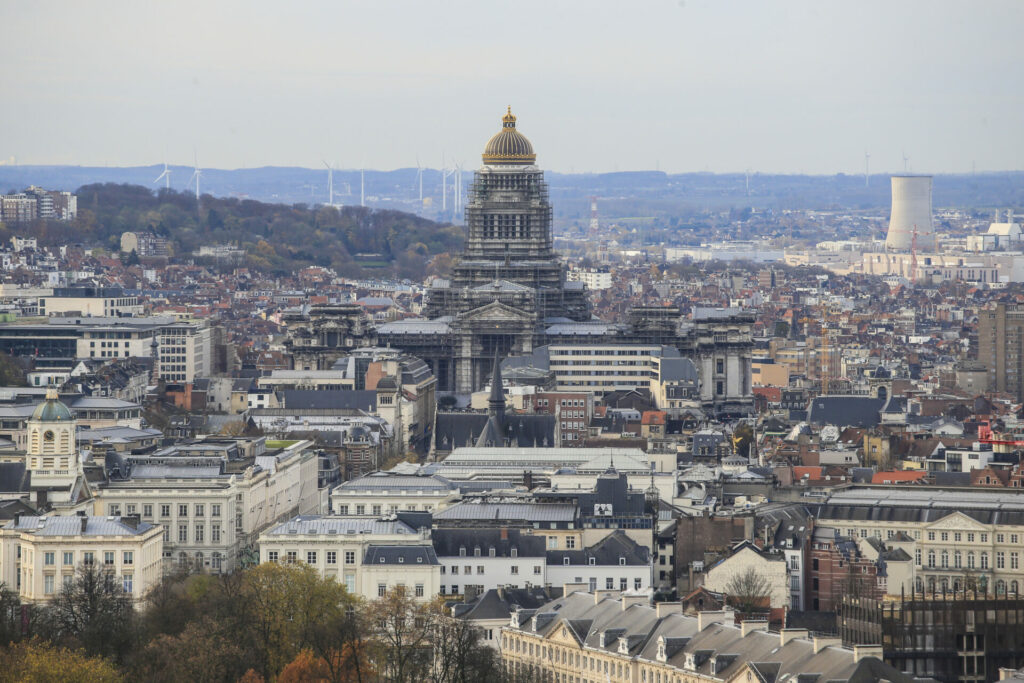After more than eight months of trying to form a new Regional Government, Brussels formator on the French-speaking side David Leisterh (MR) has given up. His two weeks of extensive "last chance" efforts brought no relief.
Leisterh had given himself until Friday to untangle the complicated knot of party politics, vetoes and linguistic balance in Brussels, but did not find a way forward. Meanwhile, Brussels faces huge challenges – in terms of safety, but also on the budgetary front.
The formator's failure was not entirely unexpected, as the formation talks had been stuck on the same issue for months: PS (French-speaking socialists) refuses to enter into a government with N-VA (right-wing Flemish nationalists) on board. A more in-depth explanation of the issue can be found here.
Some had hoped that the recent drug-related shootings in Anderlecht would prompt the negotiators to put petty party politics aside and assume their responsibilities, but the rift has seemingly only deepened.
Who are the main players?
On the French-speaking side, liberals MR won the most votes in the elections in June 2024. Therefore, its Brussels leader David Leisterh assumed the position of formator and was the first one allowed to try and form a coalition.
He quickly brought together his party, PS and Les Engagés (centrists) last summer – giving the three-party majority 44 seats of the 72 in Parliament for French speakers.
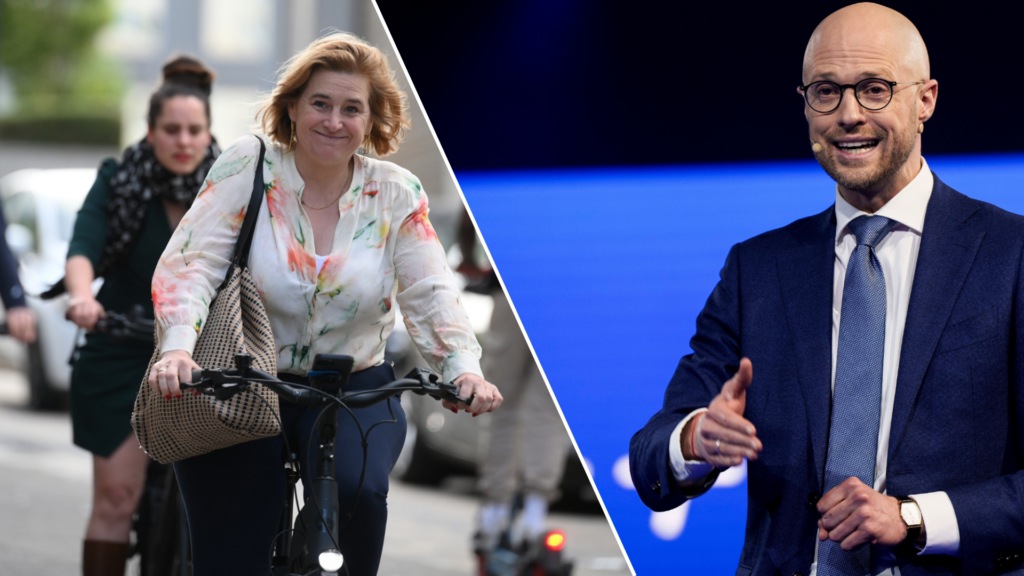
Formators for the Dutch and French-language side, Elke Van den Brandt (left) and David Leisterh. Credit: Belga
However, this alliance lasted until an agreement was finally reached on the Dutch-speaking side at the end of November. After months of difficult talks and changing coalition partners, formator Elke Van den Brant (Groen) brought together her green party, N-VA, Open VLD (liberals) and Vooruit (socialists) – holding ten of the 17 seats for reserved Dutch speakers in the Brussels Parliament.
But the presence of N-VA is a thorn in the side of PS, as they believe the Flemish nationalist party to be racist and anti-Brussels and are against the party's reform plans. PS Brussels leader Ahmed Laaouej quit the negotiation table not long after Van den Brandt's announcement. He has refused to return.
Brussels N-VA negotiator Cieltje Van Achter responded that she "absolutely does not understand why Mr Laaouej persistently refuses" to speak with her. "Does he even know me? I have done ten years of constructive opposition in Brussels – it is my capital as much as his."
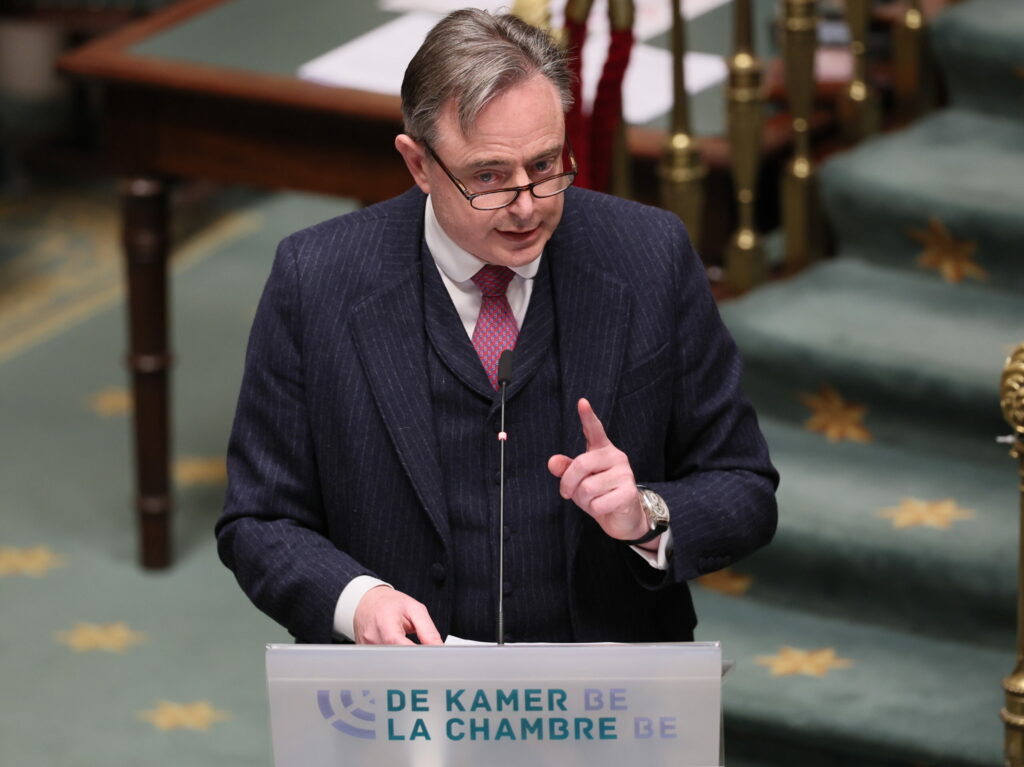
Prime Minister Bart De Wever at a plenary session of the Chamber at the Federal Parliament in Brussels, Thursday 20 February 2025. Credit: Belga
On paper, the French-speaking side has no say in the Dutch-speaking coalition (and vice versa), but all parties in both majorities must still find a coalition agreement and then work together to implement it. In practice, this means a certain degree of political and ideological convergence between all partners is required.
On Thursday, Belgian Prime Minister Bart De Wever (N-VA) stressed in Parliament that it is up to each language group to form its own coalition. "That is a constitutional reality that every language group must accept and respect."
He also urged the Brussels parties to form a government as quickly as possible. "It is time to bring order to the capital. The lax laissez-faire policy must end. The capital's image is suffering, both domestically and internationally. I call for a sense of responsibility from all parties involved."
What happens now?
The negotiating parties must now go back to the drawing board. According to the Belgian system, the party that won the second-most votes now gets the opportunity to lead a new round of conversations. In this case, however, that would be PS – which has already made its position very clear.
Last week, Brussels MP and Minister in the previous Federal Government Karine Lalieux (PS) ruled out that PS Brussels leader Laaouej would take the baton from Leisterh. What's more, she suggested that Brussels could do with a mediator instead of a new formator.
The method of bringing in a mediator was also used during the negotiations for the Federal Government: when it looked like talks would collapse at the end of summer, the King appointed Maxime Prévot (then leader of Les Engagés, now Foreign Affairs Minister) to bring the positions of the different parties closer together.
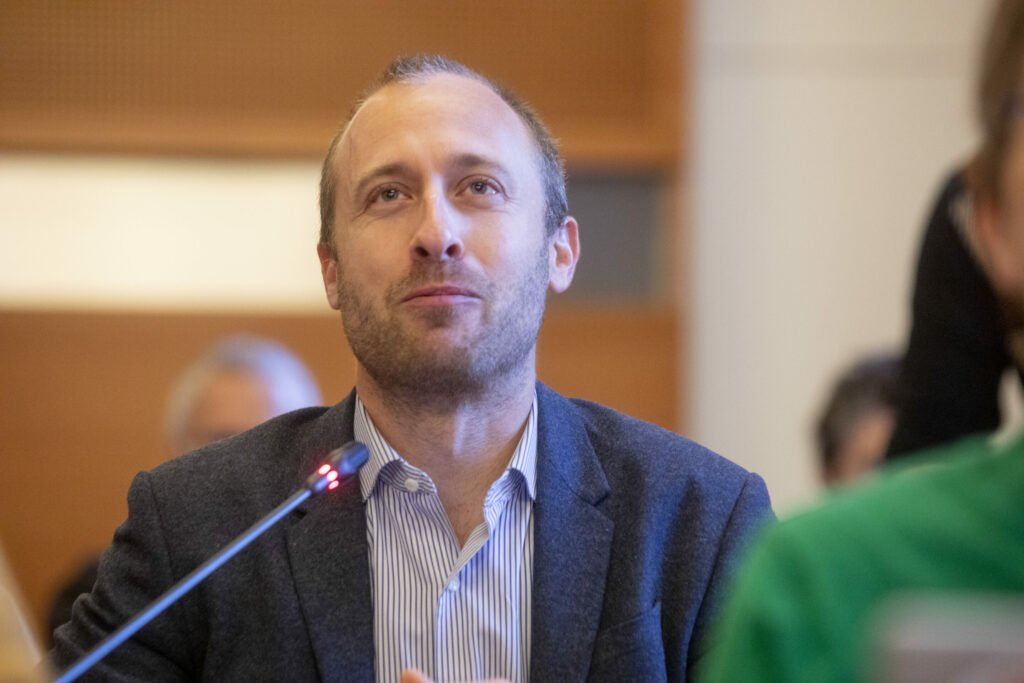
Les Engages' Christophe De Beukelaer. Credit: Belga/Hatim Kaghat
However, another unexpexted scenario unfolded on Friday evening: after Leisterh quit, Les Engagés and Groen announced that they would take initiative to start a new round of talks together.
“The step aside of David Leisterh as formator and PS’ refusal to take initiative as the second French-speaking party confirm the unprecedented political impasse in which Brussels finds itself,” said Christophe De Beukelaer of Les Engagés and Van den Brandt in a joint statement.
“Our mission is clear,” the two said. "To bring sufficient democratic parties to the negotiating table to form a Brussels government.”
Van den Brandt and De Beukelaer are inviting all parties again to “collect information and facilitate the search for a new puzzle. We make sure that people talk to each other, looking for a solution. We will not be making any assumptions about the end result, otherwise the assignment is over before it starts.”
How long this new round of talks will last is currently unclear, as is what would happen if a solution is not found. In any case, new elections are not an option. The Belgian Constitution (Article 117) states that Regional elections can only be organised every five years, so not until June 2029.
But who runs Brussels in the meantime?
Due to the lack of a new government, Brussels is led by what Belgians call a government "in current affairs." No new people are brought in, but the outgoing ministers continue their work to ensure continuity while negotiations are ongoing.
The main task of such a government in current affairs is guaranteeing the continuity of government tasks and the normal functioning of the region. The outgoing ministers are limited to purely administrative decisions, continuing policies that were already decided, and only settling routine (or very urgent) matters.
Meanwhile, the Brussels Parliament has been reshuffled according to the results of the June elections and continues its business as usual.
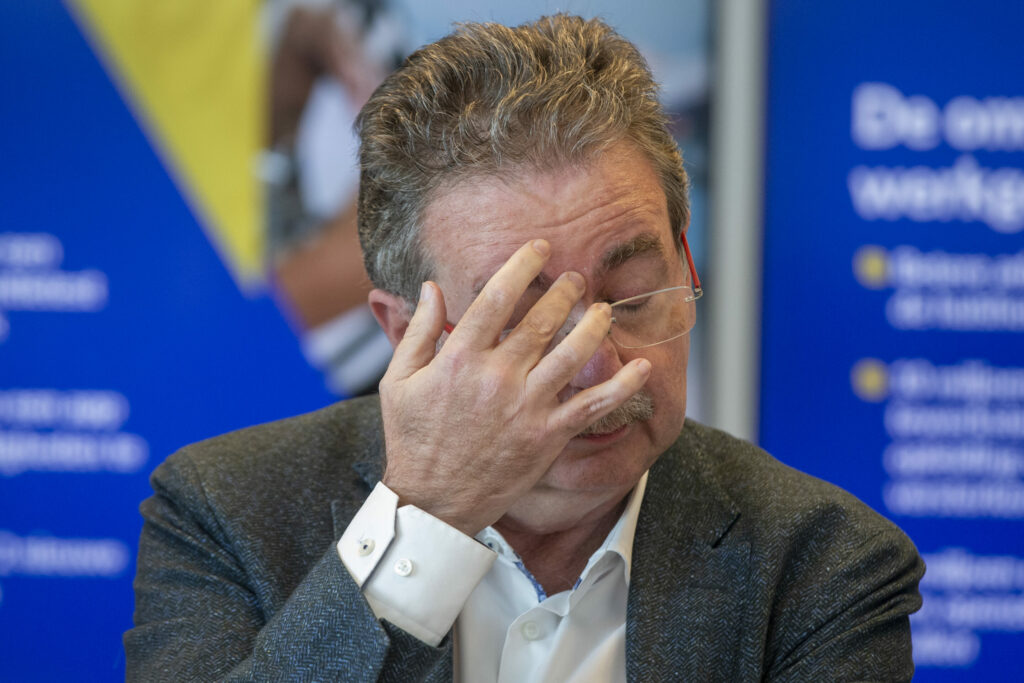
Outgoing Brussels Minister-President Rudi Vervoort. Credit: Belga/Nicolas Maeterlinck
In terms of the 2025 budget, the outgoing Brussels Government continues with its system of "provisional twelfths." This is used to finance the government's public spending in the absence of an approved annual budget.
It stipulates that if a government has not adopted a budget for the coming year by 31 December, it can only spend one-twelfth of what it has spent the previous year every month, with the addition of indexation. This ensures the continuity of state services and the payment of public service salaries.
Outgoing Brussels Budget Minister Sven Gatz (Open VLD) stated that he hopes the Brussels Parliament will approve the provisional twelfths for April to June during its meeting on 21 March.
Meanwhile, the Belfius bank reduced its cash credit line for the Brussels-Capital Region from €500 million to €200 million. While Gatz said the consequences in themselves are limited, he also called it "a clear signal" towards the formation in Brussels.

